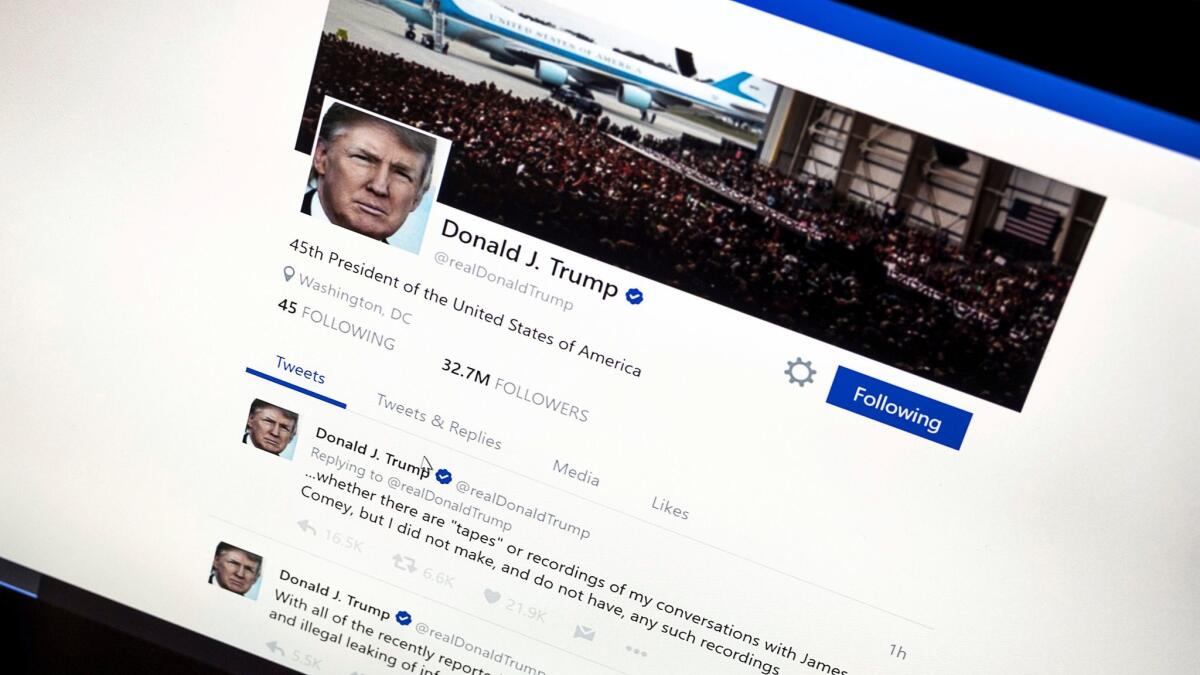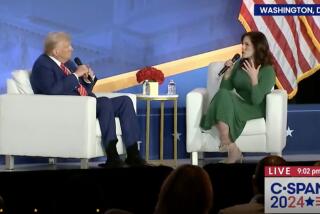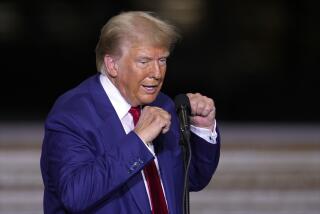Editorial: Trump blocking people on Twitter is childish, but it’s hardly a 1st Amendment violation

- Share via
Despite pleas from across the political spectrum that he stop his 140-character outbursts, President Trump can’t stop tweeting. Indeed, he has defended his incessant online exclamations as essential to the conduct of his office. “My use of social media is not Presidential,” he tweeted earlier this month, “it’s MODERN DAY PRESIDENTIAL.”
Taking Trump at his word about the importance of these communiques, a group of Twitter users who have been blocked from seeing and responding directly to his tweets has filed suit in federal court in New York seeking to regain access to @realDonaldTrump, the account Trump established before he became president and still uses. (He also tweets, but less provocatively and to fewer followers, on an official @POTUS account he inherited from Barack Obama.)
The plaintiffs’ legal argument strikes us as debatable. But their sense of grievance rings true. If Trump is going to treat Twitter as a means of engagement with the public, he shouldn’t muzzle voices that disagree with him.
That is just what Trump, or his social-media staff, did to the plaintiffs in the lawsuit, which was filed this week by lawyers from the Knight First Amendment Institute at Columbia University. For example, Rebecca Buckwalter-Poza, a writer and legal analyst, was blocked after she responded to a Trump tweet about his election victory with: “To be fair, you didn’t win the WH: Russia won it for you.”
Buckwalter-Poza and the other plaintiffs argue that the president and his social-media team are violating the 1st Amendment by preventing them from viewing Trump’s tweets, replying to them and participating in the associated comment threads. It’s an intriguing but not conclusive argument.
The idea that the plaintiffs are being kept in the dark about what Trump has tweeted is doubtful; his tweets — especially the factually challenged ones — tend to be copiously quoted by others on Twitter and in the news media, and can easily be viewed by the plaintiffs on Twitter if they log out of their accounts.
The plaintiffs are on more solid ground in complaining that they’ve been barred from arguing with Trump in his own feed. But to turn that into a constitutional claim, they must argue that @realDonaldTrump is a “designated public forum” controlled by the 1st Amendment, and that’s much harder to establish. The longstanding account is “personal” even though he uses it to post about government and politics.
Then there is the fact that Twitter is a private company, not a public utility. It should have a 1st Amendment right to set its own rules — even though, as professor Eugene Volokh of UCLA law school has pointed out, a federal judge has ruled that a Facebook page set up by a local government was a “limited public forum.” Facebook, like Twitter, is a private company.
Twitter created the blocking tool as a countermeasure to disruptive users, in the spirit of promoting civil debate. Whatever the courts say about the constitutional issue, Trump is acting childishly by excluding citizens who dare merely to disagree with him from @realDonaldTrump — a forum what he considers an important channel of communication. Such pettiness isn’t presidential — or even MODERN DAY PRESIDENTIAL. If Trump is going to use this forum to speak to the world, he needs to let the world talk back.
Follow the Opinion section on Twitter @latimesopinionand Facebook.
More to Read
A cure for the common opinion
Get thought-provoking perspectives with our weekly newsletter.
You may occasionally receive promotional content from the Los Angeles Times.










